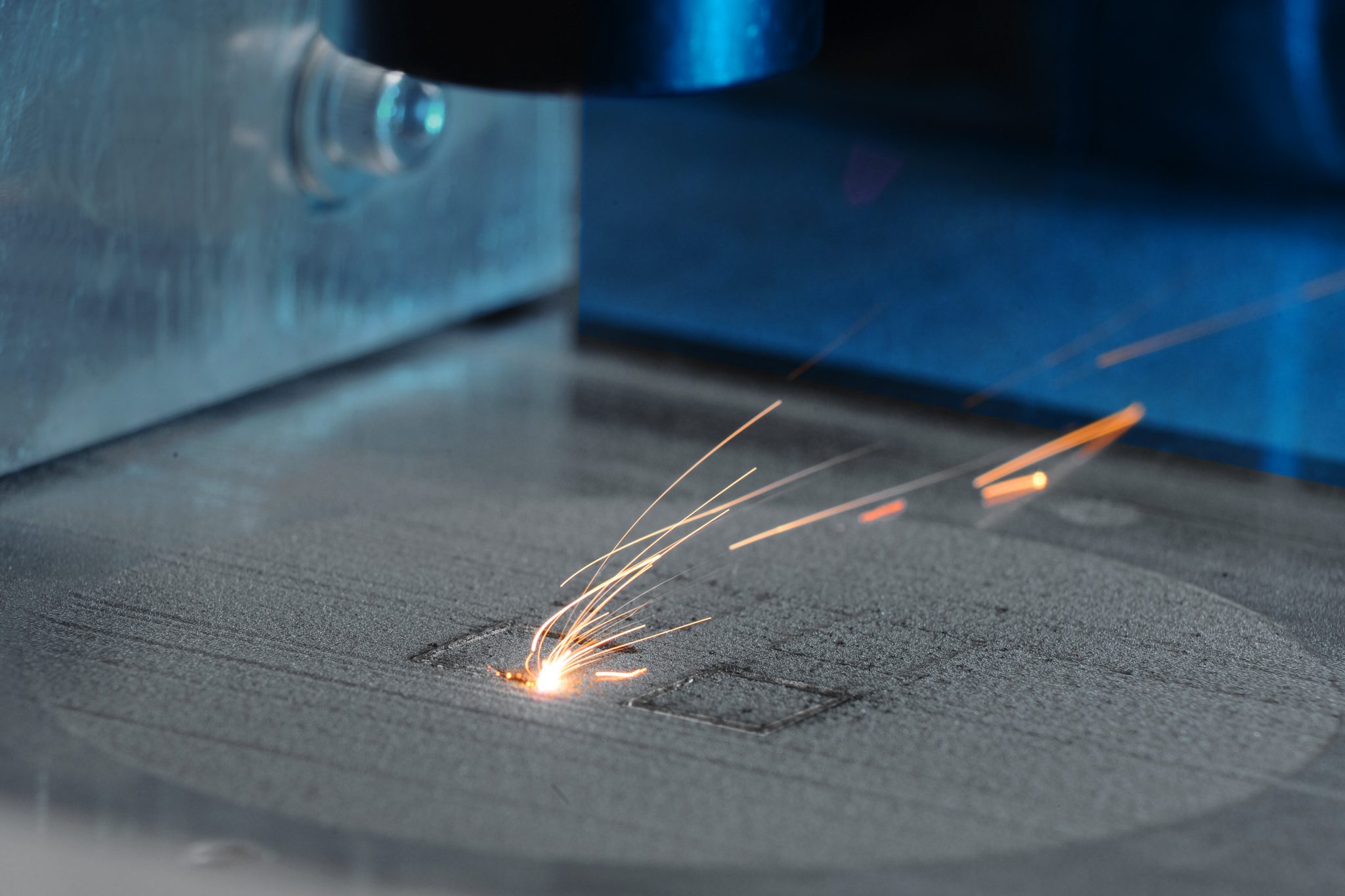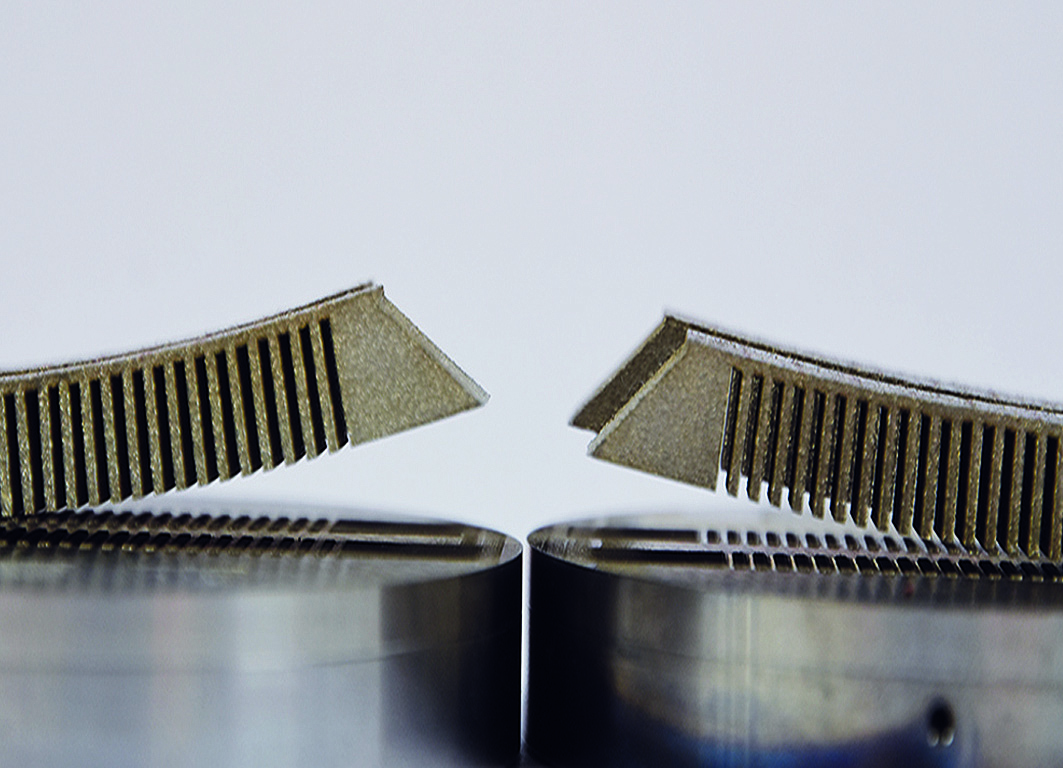The western German state, North Rhine-Westphalia, has launched the NRW Leitmarkt-funded project AddSteel to develop new function-adapted steel materials for additive manufacturing.
This three-year project is supported by the SMS Group GmbH, a global plant engineering company, and the Fraunhofer Institute for Laser Technology ILT, and will focus on the qualification of the developed materials for laser powder bed fusion (LPBF).
Case-hardening and heat-treatable steel powders have already been successfully designed within AddSteel. Andreas Vogelpoth, a member of the Laser Powder Bed Fusion Group and head of the AddSteel project at Fraunhofer ILT, reported that, “A plant has already been built at SMS group that can nozzle suitable metal powders.”

Industrializing metal additive manufacturing
Researchers from the SMS Group, Deutsche Edelstahlwerke Specialty Steel, Fraunhofer ILT and its spin-off Aconity identified a lack of materials within the steel industry to meet the demands for complex, and lightweight, components. Additive manufacturing technologies such as LPBF enables the production of such lightweight and optimized metal 3D printed parts.
Fraunhofer ILT’s has been exploring LPBF processes and materials for aerospace, medical and automotive industries. Last year, a new LPBF method that reduces residual stresses and distortion in parts. Following this, a 3D printed component made from superalloy Inconel 718 was tested which “demonstrated significantly reduced distortion.”
Prior to this, Fraunhofer ILT and RWTH Aachen University received an award for development of Extreme High-Speed Laser Material Deposition (EHLA), a process that blows powder directly into the laser beam, depositing freshly melted metal onto a pre-made substrates.

Crack-resistant components
The partners of the AddSteel project have recognized a lack of availability for case-hardening and heat-treatable steel. Such materials could be 3D printed for crack-resistant components. Nevertheless, this is said to require new types of steel elements and combinations.
Therefore, the project partners have chosen to develop alloys in an iterative process, combined with systematic adjustments to the LPBF process and equipment. Following this, demonstrators for fabricating new components and spare parts will be used to test and validate performance and cost-efficiency.
“Deutsche Edelstahlwerke Specialty Steel is now supplying the new alloys that Fraunhofer ILT will soon be testing on its LPBF system, after the alloys have been converted into powder form,” added Vogelpoth.
For all the most recent research updates and live coverage of leading 3D printing events, subscribe to the 3D Printing Industry newsletter, follow us on Twitter and like us on Facebook.
Seeking jobs in academia? Make your profile on 3D Printing Jobs, or advertise to find expertise in your area.
Featured image shows the LPBF in action at Fraunhofer ILT Aachen. Photo via Fraunhofer ILT.


